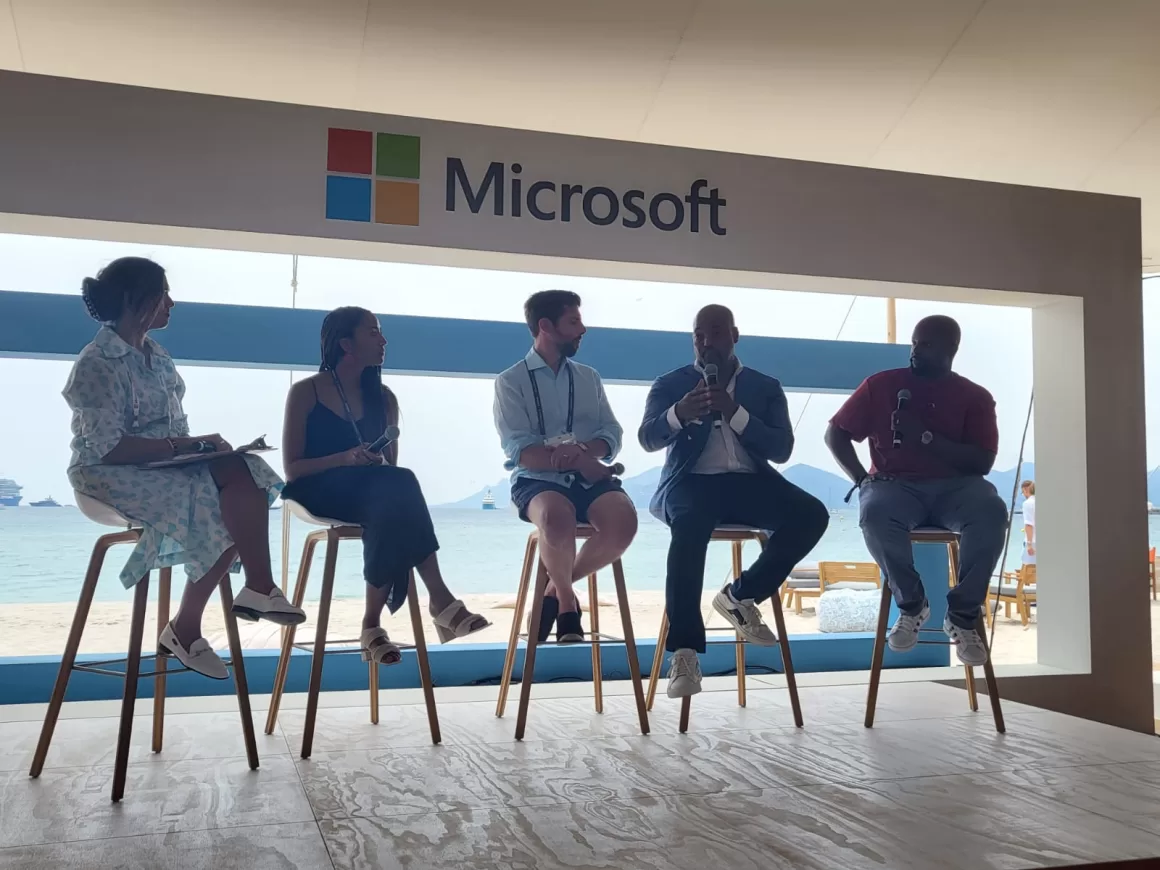Microsoft assembled an impressive panel of experts at the 70th Cannes Lions Festival of Creativity to discuss the untapped potential and growth of minority-owned media in the advertising industry. The panelists delved into the importance of investing in and supporting minority-owned media, arguing that it represents an opportunity for systemic change in the industry.
“The exclusion list is one aspect of the value chain. When you start looking at the entire buying process from agency to ad servers going down the whole chain, there is a lot more inequity that occurs,” said Mark D. Walker, CEO of Direct Digital Holdings, in the panel discussion. Walker pinpointed areas in the advertising value chain where a lack of expertise and knowledge about the minority-owned media ecosystem can inhibit campaigns. The need for partners like Colossus SSP, who can provide assistance with navigating this complex landscape, was emphasized.
Laura Baker, Brand Engagement & Social Impact Lead for Dove, Unilever, Crown Act, further highlighted the importance of authentic engagement with minority audiences. “Deep storytelling is a huge piece of our strategy,” she said, stressing the value of co-creation and integration in reaching diverse audiences.
While engaging minority audiences is seen as crucial, the panelists acknowledged the risk of such efforts appearing performative. “We have to constantly check ourselves,” Caleb Pearson, VP of Customer Engagement & Media at McDonald’s admits. “It’s not something you can set a strategy and go solve. It’s a constant daily checking yourself because you’re always going to stray and you need to keep staying online.”
Pearson advocated for the inclusion of diversity not only in internal teams but also within agency partners. As demographic shifts are expected to make multicultural audiences a majority by 2030, the need for brands to engage authentically with diverse audiences is more pressing than ever.
Kerel Cooper, President of Advertising at Group Black, stressed the business case for diversity. “Marketers shouldn’t have a multicultural strategy because it’s the right thing to do, they should have that strategy because it’s good business and that’s where the opportunity exists,” he stated.
The panelists also discussed the role of generative AI in personalizing creative content and its potential for amplifying cultural faux pas if the data it’s trained on includes biases. Pearson emphasized the importance of understanding and rectifying any biases in AI tools and the need to adapt to cultural nuances within various platforms.
Both Cooper and Baker shared success stories of campaigns that had been able to engage minority audiences effectively. According to Baker, “Purpose drives trust; that trust ultimately drives engagement, loyalty, advocacy, and growth. Consumers will reward that loyalty if you build a brand that speaks to them.”
However, the panel cautioned that successful engagement must be backed by sincere commitment and lasting performance. As Mark D. Walker put it: “The George Floyd support is not going to last – only performance will.”
Indeed, as echoed by a quote from Amanda Gorman, shared by McDonald’s VP, “There’s one thing you can’t buy or fake as a brand with your consumers or fans and that’s trust.”
These insights underscore the necessity for advertisers to invest time, resources, and genuine commitment in their engagement with diverse audiences, ensuring a future where advertising not only reflects but also respects the diversity of its audience.


